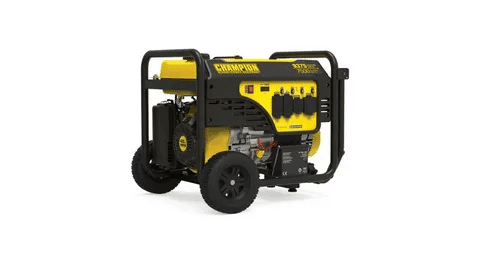Understanding 7500 Watt Generator Capacity
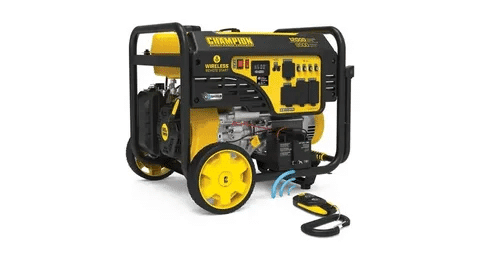
A 7500 watt generator can be important power source of the domestic user who wants to have backup electricity in case of power cuts. The size of this generator lies within the range of whole-house backup power that has the potential of servicing numerous appliances at once with consistent electrical power providing output. Knowing what your 7500W generator can run can give you information on what to schedule in terms of devices you need during a power outage.
The 7500 watts capacity implies that your generator is able to provide up to 7,500 watts of constant power and most of them have a surge load of 8,000-9,000 watts in short bursts when the appliances start up. Such surge capacity becomes very important in the case of devices having high starting watts such as refrigerators, air conditioners, and well pumps.
Essential Appliances a 7500 Watt Generator Can Power
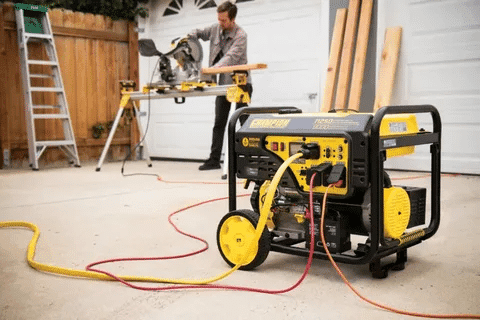
Lighting and Basic Electronics
All lighting in your home can be handled by your 7500W generator with ease. The LED bulbs require 7 to 10 watts per bulb as opposed to the conventional incandescent bulbs that employ about 100 watts. This implies that you would be able to run dozens of lights throughout your house and still have lots of capacity left to other much needed devices.
When electrical supply is unavailable, the communication equipment is super-important, and your generator can charge and discharge several smartphones (4-7 watts), WiFi routers (4-10 watts), desktop computers (100-450 watts), touch-screen phones and tablets (up to 10 watts), and 14 inch or less panel-size TV (17-295 watts) at a time. As an example, turning on a big ass 65-inch LED TV, coupled with several phones, with several computers does not consume up to 1,000 watts altogether.
Kitchen Appliances and Food Preservation
Preservation of food is one of the top priorities when faced with long outages. A 7500 watts generator will allow powering standard refrigerators (100-200 watts running, 600-800 watts starting) and separate freezers (150-300 watts) concurrently. The microwaves (600-1,700 watts), coffee makers (800-1,200 watts) and electric stoves (2,000-5,000 watts per individual burners) can also run on your generator.
In homes that have multiple kitchen appliances, the 7500W capacity means that you can operate the refrigerator, freezer, microwave and coffee-maker all at once and still be able to have power in other smaller but important systems within your home.
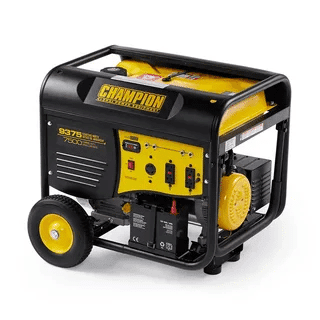
Water and Sump Pump Systems
Access to water is the major source of concern once the outage occurs, particularly in the countryside, which has well water systems. Most residential well pumps can be powered with a 7500 watt generator (750-1,500 watts running, 2,000-4,000 watts starting) and the result could be unlimited water to drink, cook with, and clean with.
Sump pumps which are used in flood prevention in the basement normally consumed 800- 1200 watts during running with starting watts of 1500- 2500 watts. These pumps can be used with your 7500W generator which can also supply other necessities at home to give full coverage of facilities in your house and property.
HVAC Systems and Climate Control
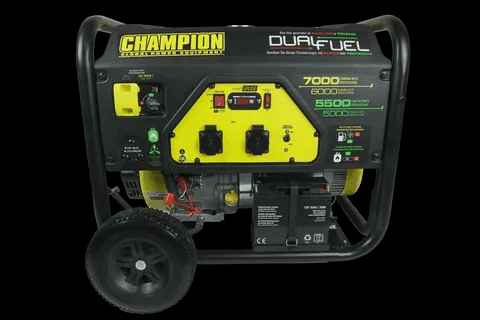
Air Conditioning Coverage
The air conditioning central systems are the most power consuming system in residential systems and these power consumptions are discounted since they can be served by a 7500 watt generator on the low end to medium-sized systems. Both window air conditioners (1,000-1,200 watts) and Portable AC units (1,000-1,500 watts) do not cause any discomfort to your generator. In case of central air systems 2-3 tons units (3000-4500 watts) and less can operate off your 7500W generator.
The most important factor to look into is the starting watts whereby air conditioning systems need two to three times their amount of running wattage on start-up. This is where the surge capacity of your generator will come in as it allows the AC system to start whilst keeping the other appliances in power as well.
Heating Systems and Fans
The electric heating systems have varying needs of power. Space heaters require 1,000-1,500 watts and an electric furnace takes 300-800 watts. With 7500 watts of power, your generator can operate several space heaters or operate a furnace blower and other domestic necessities etc.
Portable fans (50-100 watts) and ceiling fans (60-70 watts) use very little power so that you can activate more than one fan in order to circulate the air with still some reserve power to run large appliances. The combination assists in getting comfortable temperatures efficiently.
Power tools and workshop equipment Power tools Power tools The eyes of peopleMobile componentsMobile components
Power Tools and Workshop Equipment
Heavy-Duty Tool Support
Supporting power tools through outages can be very useful because during such times, construction and maintaining projects go in progress. The common household power tools such as table saws (1,500-2,000 watts), air compressors (1,000-2,000 watts) and welders (3,000-5,000 watts on smaller start-up) can be powered with a 7500watt generator.
The surge capacity of the generator fits the high starting watts that are synonymous with the use of power tools in that it can work efficiently without blowing the overload protection. This feature renders 7500W generators to be appreciated by contractors and serious enthusiasts of DIY.
Multiple Tool Operation
The capacity of your generator will enable you to run a number of small tools at the same time. Even when you are running a circular saw (1,200-1,800 watts), drilling (400-800 watts) and shop vacuums (1,000-1500 watts) you have power to keep lights and ventilation operating in the workshop.
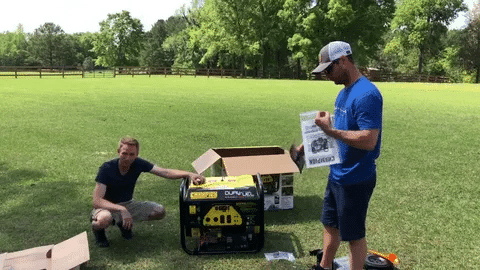
Medical Equipment and Safety Systems
Critical Medical Devices
In case of any household that has medical appliances, power reliability becomes life-vital. A 7500 watt generator will do oxygen concentrator (300-600 watts), CPAP machine (30-60 watts) and medical refrigerator (100-300 watts) with plenty of room to spare in the event of other important systems at home.
The generator also has a stable power supply which guarantees the usage of the sensitive medical equipment without any threat of damage to the equipment due to the variation of power which is a feature of the small generators.
Security and Communication Systems
Home security systems can be very power-efficient with surveillance cameras (5-10 watts each), security control panel (20-50 watts) and motion detector (1-3 watts each). With 7500W, your generator is able to run complete security systems and have enough capacity to power the other house requirements.
Two-way radios (5-15 watts), weather alert systems (10-30 watts) are all emergency communication equipment, which work comfortably within the power capacity of your generator, keeping you connected and aware of serious outages.
Load Management and Power Distribution
Calculating Your Total Load
Effective use of generators needs to have a knowledge of your overall power load. The estimated number of all the appliances that you intend to be using at the same time must sum up to be less than the 7,500 watts capacity. Also keep in mind starting watts of the biggest appliance, which you do not want to exceed the surge capacity of your generator.
As an illustration, you can run a refrigerator (150W), a freezer (200W), lights (200W), TV (100W), a window AC (1, 200W) and all of this amounts to 1, 850 watts of running and probably does not exceed the capacity of your generator that leaves some room to accommodate other devices.
Smart Load Distribution
The practical methods that can be employed to manage the loads include prioritizing the necessities and employing timers or manual switching of the high power appliances. Rather than having all the high-wattage appliances running at the same time, instead, you should wait with some of them so as to optimize the efficiency of your generator.
Generator Types and Efficiency Considerations
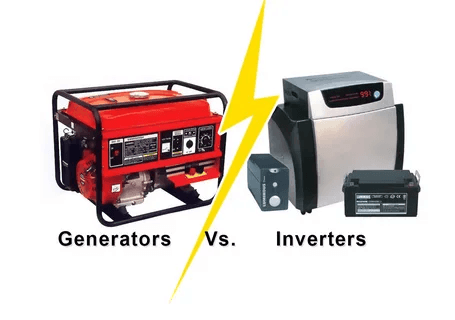
Inverter vs. Conventional Generators
There exist conventional and inverter 7500 watt generators. With inverter generators, the power is cleaner which is good to use on sensitive electronics and conventional generators have more power and are cheaper. The selection process will come down to what you want the devices to be, and economical concerns in alignment with the cost.
Inverter generators have also been known to perform better under partial loading hence could be used when the power requirements fluctuate throughout the day. Traditional generators perform better under higher loads and they can, therefore, be used in applications that are on a high power consistently.
Fuel Types and Runtime
The type of fuel provided to generators does influence the cost of operations, as well as the total run. The gasoline generators are of high power at a time of refueling the generator. Diesel generators enjoy good fuel efficiency to ensure prolonged operations, whereas propane generators enjoy better runtime and clean fuel operations.
When selecting the type of fuel to use with your generator, make sure you take into consideration the availability of fuel at a local level, as well as the amount of storage space you can dedicate to it since this will be an important determinant of the practical usefulness of your generator in the event of prolonged outages.
Safety and Installation Considerations
Proper Generator Placement
Generators should also be placed properly and ventilated. When using generators, do not use them inside, or in confined areas because of the lethal effects of carbon monoxide. Also, keep your generator at a distance of at least 20 feet away windows, doors and vents; to ensure that you do not bring in the exhaust in your house.
There would be advantage of weather protection when operating outdoor. Maybe some generator covers or enclosures giving weather protection but containing correct ventilation so that you can safely operate the generator.
Electrical Connection Methods
There are two ways your 7500W generator can be connected to your home, through a transfer switch or extending cords with caution. The most safe and convenient way of connection is transfer switches that enable you to connect to the electrical panel of your house directly and provide a backfeed to utility lines: that could cause dangerous backfeed.
To connect in a portable manner, utilize heavy duty extension cords rated to be used outside and at proper level amperage. It should be avoided to overload the individual circuits and there should proper grounding to allow safe operation.
Maintenance and Longevity
Regular Maintenance Requirements
Adequate maintenance guarantees you can use your 7500 watt generator at the right time and in the right manner. Oil change, air filter, and replacement as well as spark plug maintenance ensures that your generator works efficiently. Keep to manufacturer schedules and use recommended parts and fluids.
Long-term reliability means that it becomes important to maintain the fuel system. Gasoline-using generators should use fuel stabilizers and drain fuel systems when planning to store them over extended periods. Periodic exercise running contributes to maintaining the good condition of the engine and detecting the emerging problems, prior to emergency situations.
Seasonal Preparation
Plan ahead of seasonal load operations by conducting generator operation test and fuel supply inspection prior to season of peak outages. Preparation during winter would comprise the use of the right grade of oil, and the sufficiency of starting operations in cold weather.
During summer, the summer preparation is done trying to keep the system in good condition so that it will pass the cooling task of the warm summer days. Load testing on a regular basis will help you make sure that your generator is able to carry the real power when demanded.
Cost Considerations and Value Analysis
Initial Investment vs. Long-term Value
These generators 7500 watt have a considerable price ranging between 800 and 3,000 dollars depending on functionality and brands. The value is however realised when one looks at the cost of wastage of food, man hours and inconvenience when the outage is long.
Estimate how much money can be saved by avoiding food losses, retaining working opportunities at home and by staying out of temporary drafts when the outages are prolonged. To many families, the cost of a 7500W generator can be recouped in mere incidences of major power outages.
Operating Costs and Fuel Consumption
Depending on loads and generator efficiency, fuel is consumed. It should use 0.5-1 gallon of gasoline an hour at moderate loads and more at higher ones. Store fuel strategically in a scenario of an outage.
With the adequate care, maintenance costs are not very high, commonly requiring oil change after 50-100 hours of work and regular changing of filters. This can be put on the back of the value that it gives during outages.
Real-World Power Scenarios
Typical Household Load Examples
A typical house during an outage may look as: refrigerator (150W), freezer (200W), backup lights (200W), TV (100W), fans (150W), and phone charging (20W), which gives 820 watts. This gives a large margin to put new appliances or temporary high appliances.
By switching on a window air conditioner (1,200W) the sum rises to 2,020 watts, which will not overload your generator, yet still give you decent living conditions in case of a prolonged blackout.
Emergency Scenarios and Priorities
In the case of severe weather emergency, first responders should focus on life safety systems, i.e. medical equipment, communication equipment, and lighting. The food preservation and the comforting systems such as heating, or cooling are the secondary priorities.
Its 7500W generator would allow you to be completely prepared to situations where emergency conditions might require providing power to both levels at the same time and have comfortable conditions even during as long a period as possible because of a power outage.
Conclusion
A 7500 watt generator will cover all the bases in terms of a power outage that most households will experience with the capacity of running critical appliances, heating and cooling system, and a variety of devices simultaneously. The generator is of a very good power-to-use ratio and the reason it is applicable in whole-house power backup requirements. It has the capacity to run refrigerators, air conditioning, lights, electronics, and the water pumps at the same time, which means a comfortable and safe environment will be ensured when the power is gone a long time.
The home generators that have a power of 7500 watts can provide effective backup power through which various house appliances can be run simultaneously like refrigerators, air conditioners, lights, and electronics. These generators when well loaded can cover all of the household essential systems and have spare capacity to cover power tools and medical equipment. Just paying off in avoided food spoilage, kept comfort, and uninterrupted output during power failures, a 7500W generator is the perfect solution to serious emergency preparedness and whole-house backup power requirements.

